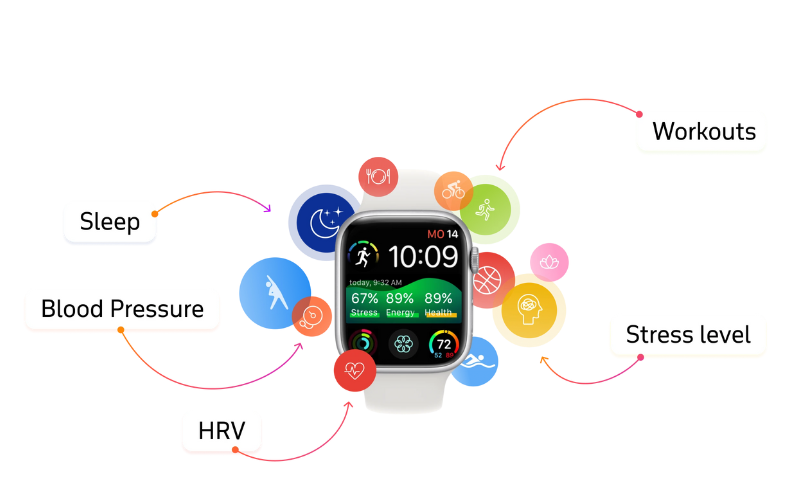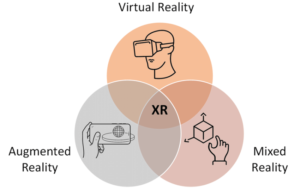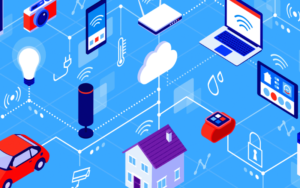The pursuit of health and wellness has been a human endeavor since the dawn of time. From ancient herbal remedies to modern medical marvels, we’ve constantly sought tools and approaches to optimize our physical and mental well-being. Today, however, technology is taking this pursuit to a whole new level, ushering in the era of Health Tech. This dynamic field blends cutting-edge technology with healthcare, creating innovative solutions that are transforming the way we manage our health, both proactively and reactively.
Beyond the Doctor’s Visit: Embracing Personalized Care:
Imagine a world where healthcare isn’t a one-size-fits-all approach, but rather a personalized journey tailored to your unique needs and preferences. Health Tech, with its focus on wearable devices, remote monitoring, and AI-powered analytics, is making this vision a reality. From smartwatches tracking your heart rate and sleep patterns to apps analyzing your dietary habits and offering tailored recommendations, technology empowers you to take control of your health, moving beyond reactive doctor visits to proactive self-management.
From Diagnosis to Prevention: Empowering Early Intervention:
Imagine catching a disease in its early stages, before symptoms even appear. Health Tech, with its advancements in biomarkers, genetic testing, and AI-powered diagnostics, is pushing the boundaries of early detection. Imagine wearable devices constantly monitoring your blood sugar levels, allowing for early intervention in diabetes, or genetic tests revealing your predisposition to certain diseases, enabling preventive measures. This shift towards early detection holds the potential to revolutionize healthcare, saving lives and reducing long-term healthcare costs.
Mental Wellness: Technology Fostering Emotional Wellbeing:
Mental health, once a topic shrouded in stigma, is finally receiving the attention it deserves. Health Tech is playing a crucial role in this shift, offering a range of tools and resources to support mental well-being. From meditation apps and online therapy platforms to virtual reality-based exposure therapy, technology is providing accessible and personalized solutions for individuals struggling with anxiety, depression, and other mental health challenges. This democratization of mental health support has the potential to empower individuals to manage their mental well-being and build resilience.
The Future of Healthcare: Collaborating with Technology:
Imagine a future where doctors and machines work hand-in-hand, leveraging technology to deliver better healthcare. Health Tech, with its advancements in robotic surgery, AI-powered decision support systems, and telemedicine consultations, is paving the way for this collaborative future. Imagine surgeons utilizing robots for minimally invasive procedures, AI systems assisting doctors in analyzing complex medical data, or patients receiving expert consultations from anywhere in the world through telemedicine. This collaborative approach holds the potential to improve healthcare outcomes, reduce costs, and increase accessibility to quality care.
Challenges and Considerations: Navigating the Ethical Landscape:
As with any technological advancement, Health Tech presents its own set of challenges and ethical considerations. Issues surrounding data privacy, cybersecurity, and algorithmic bias need to be addressed to ensure the responsible and equitable use of technology in healthcare. Additionally, the potential for overreliance on technology and the digital divide need to be considered to ensure that these advancements benefit everyone, not just a select few.
Introduction to AI-Driven Fitness Trackers and Health Monitors
AI-driven fitness trackers and health monitors are wearable devices that leverage artificial intelligence to provide insights into an individual’s health and fitness. These devices collect data about the user’s physical activity, heart rate, sleep patterns, and more, and use AI algorithms to analyze this data and provide personalized feedback and recommendations.
The Rise of AI-Driven Fitness Trackers and Health Monitors
The rise of AI-driven fitness trackers and health monitors can be attributed to several factors. Firstly, advancements in sensor technology and AI have made it possible to track a wide range of health and fitness metrics in real-time. Secondly, the proliferation of smartphones and wearable devices has made these trackers and monitors more accessible to the average consumer. Lastly, the ongoing COVID-19 pandemic has underscored the importance of health and fitness, further accelerating the adoption of these devices.
Impact of AI-Driven Fitness Trackers and Health Monitors
AI-driven fitness trackers and health monitors are transforming the way we approach health and fitness. For individuals, these devices offer a way to monitor their health, track their fitness progress, and achieve their wellness goals. For healthcare providers, these devices provide a wealth of data that can be used to improve patient care, predict health issues, and personalize treatment plans. For society at large, these devices hold the promise of improving public health, reducing healthcare costs, and promoting a culture of health and wellness.
Challenges and Opportunities in AI-Driven Fitness Trackers and Health Monitors
Despite their potential, AI-driven fitness trackers and health monitors also present several challenges. These include issues related to data privacy and security, device accuracy, and user engagement. However, these challenges also represent opportunities for innovation and improvement. By addressing these challenges, we can unlock the full potential of these devices and pave the way for a healthier and fitter future.
The Future of AI-Driven Fitness Trackers and Health Monitors
Looking ahead, the future of AI-driven fitness trackers and health monitors is bright. Key trends shaping the future of these devices include the convergence of AI and wearable technology, the rise of personalized health and fitness recommendations, and the growing focus on mental health. These trends will require ongoing innovation and collaboration among various stakeholders, including tech companies, healthcare providers, and consumers.
A Brighter Future for Health:
Health Tech is not a magic bullet, but it undoubtedly represents a significant leap forward in the pursuit of health and wellness. By embracing its potential while addressing its challenges ethically and inclusively, we can harness the power of technology to create a future where healthcare is personalized, proactive, accessible, and ultimately, empowering for all. Remember, technology is a tool, and the responsibility for our health ultimately lies with us. Let’s use Health Tech wisely to make informed choices, build healthier habits, and navigate the exciting future of wellbeing together.
Conclusion
AI-driven fitness trackers and health monitors represent a transformative force in the field of health and wellness. As technology continues to advance, the potential of these devices to improve our health and fitness is immense. However, realizing this potential will require addressing the challenges that lie ahead and leveraging the opportunities that these challenges present. As we navigate this exciting journey, one thing is clear: the future of health and wellness is digital, and AI-driven fitness trackers and health monitors will play a pivotal role in shaping this future.





